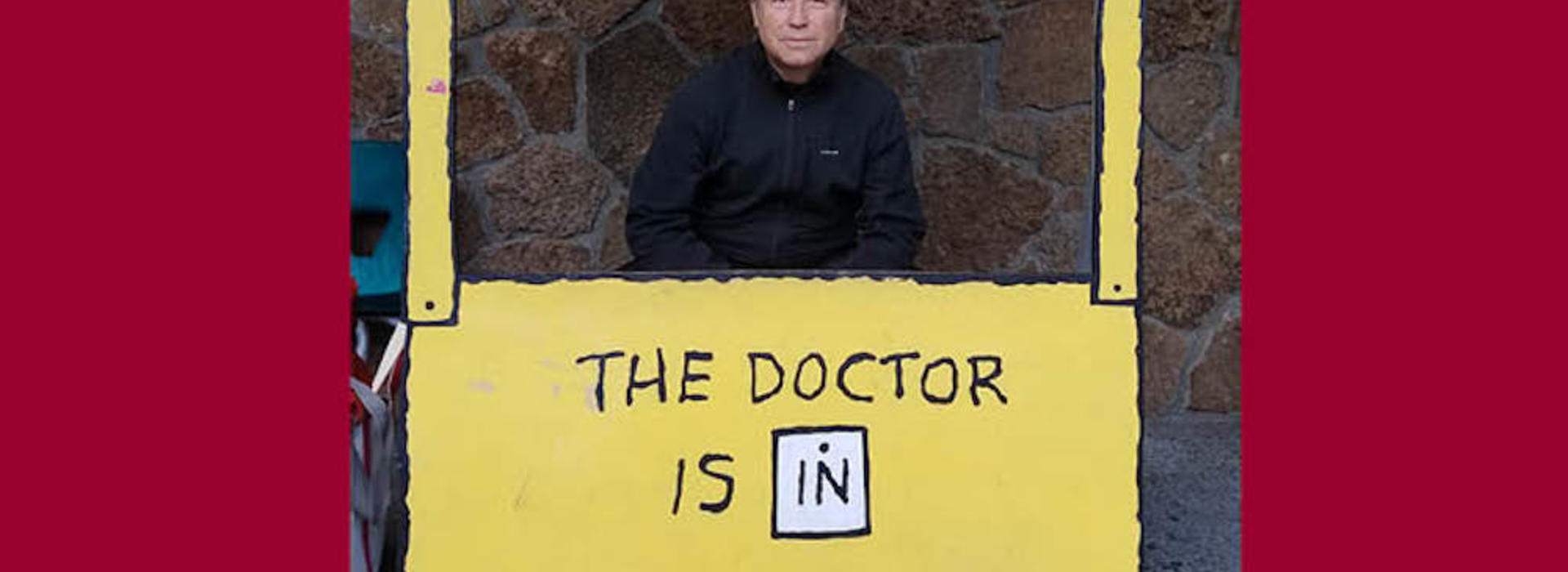
A Time for Telehealth: Alumnus Dr. Chris Eaton ’91 and the Field of Psychiatry
Although telehealth surged significantly during the pandemic, many physicians recognized the drawbacks. While prescribing medications and inquiring about routine health situations is easier with telehealth, especially in rural communities, many doctors still prefer meeting with patients in person. However, there is one field where Dr. Chris Eaton, ’91, considers it an exception to the emerging consciousness of telehealth limitations — psychiatry.
“Telemedicine is tailor-made for psychiatry. We don’t need to examine a knee or listen to a heart. The essential element is the person’s story,” Dr. Eaton said.
Even though COVID-19 changed the landscape of care in psychiatry – shifting most visits to video — Dr. Eaton recognizes that the surge in demand for mental health services is not because telehealth became popular. “I’ve had a front row seat on the devastation the COVID-19 lockdowns have had on people, especially on families with young children and people living alone. The psychosocial stress in the community has been off the charts in the last two years. Depression, anxiety and drug and alcohol use disorders have all skyrocketed, and mental health care services are overwhelmed.”
Before Dr. Eaton considered psychiatry as the specialty to pursue, he attended classes at the University of Minnesota Medical School, Duluth Campus. He recalls that classmates and teachers frequently suggested he would do well in psychiatry. “I consider psychiatry the liberal arts of medicine. I enjoy religion, philosophy, history, literature – exploring the ultimate questions about life and purpose which are at the very center of our work as physicians.”
With his interest in people guiding his career, Dr. Eaton successfully managed to gain proficiency in his field by helping others. “Who you are as a person matters as much as what you know as a physician. Medicine is a very human endeavor. It is full of subjectivity – most of our decisions come down to judgment calls. We are more than mere technicians. My treatment approach is simple: generous listening coupled with practical encouragement and medication, when necessary.”
After graduating in 1991, Dr. Eaton completed an internship in family medicine at the University of Rochester in New York. “During that internship year, it dawned on me that I was not cut out for family medicine. I was not comfortable being out on the edge of my knowledge all the time in such a broad field.”
Dr. Eaton decided to take a year off. Half way through that year, he broke his neck in a car crash and ended up in a halo. “That’s when I decided to pursue Psychiatry,” he said.
He moved to Boston, met his wife, and completed a psychiatry residency. After completing a two-year loan repayment assignment in rural Michigan, they moved to Northern California, raised two children, and he has worked as a general adult psychiatrist at Kaiser Permanente for the past 24 years.
“Interestingly, in the 26 years I’ve practiced psychiatry, I’ve never been in a position to choose the patients I treat, they have all been chosen for me,” Dr. Eaton said. “I have simply treated whoever lands in my schedule. That has made for an interesting and varied career.”